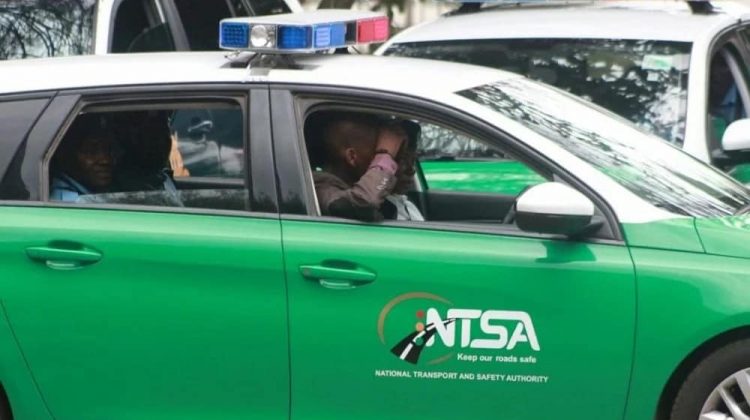the National Transport and Safety Authority (NTSA) has issued an important clarification, debunking a widely circulated list of revised minor traffic offenses and fines. The message, which falsely claimed to be from the NTSA, listed purported traffic violations and their associated penalties, misleading Kenyan motorists and creating confusion on social media platforms.
The NTSA has reiterated its commitment to transparency and lawful enforcement of traffic rules, emphasizing the importance of verifying such information through official channels. The false list, which has caused public outcry, purported to outline hefty penalties for common traffic infractions, ranging from failure to carry a driving license to improper seat belt usage.
This article breaks down the situation, explores the reality behind Kenya’s traffic regulations, and highlights the importance of verifying information to avoid exploitation and panic among road users.
The Viral Hoax: What It Claimed
The false list, which circulated widely on social media, appeared to outline a new set of traffic offenses and fines purportedly issued by the NTSA. The offenses included:
- Driving without proper identification plates: Ksh. 10,000.
- Using pedestrian walkways or pavements: Ksh. 5,000.
- Driving while using a mobile phone: Ksh. 2,000.
- Failing to wear a seat belt: Ksh. 500.
- Exceeding speed limits with fines scaled up to Ksh. 10,000.
While these offenses and fines align somewhat with Kenya’s existing traffic laws, the NTSA clarified that this specific list is not an official communication. Instead, it is a falsified document meant to mislead motorists.
NTSA’s Official Statement
In response to the circulating misinformation, the NTSA issued a public notice categorically denying the validity of the viral list. The authority emphasized that all official updates regarding traffic rules and penalties are communicated through their verified platforms, including their website and social media channels.
The NTSA also urged the public to disregard unverified messages and to report such incidents to the relevant authorities. This swift response aims to restore public confidence and curb the spread of misinformation.
Understanding Kenya’s Traffic Rules and Penalties
Kenya’s traffic regulations, governed by the Traffic Act and enforced by NTSA and law enforcement officers, are designed to ensure the safety of all road users. While the viral list was fabricated, it is crucial for motorists to familiarize themselves with the actual traffic rules to avoid exploitation by unscrupulous individuals and unnecessary penalties.
Below is a breakdown of common traffic offenses and their corresponding penalties as stipulated in Kenya’s official traffic laws:
1. Vehicle and Driving Compliance
- Driving without valid number plates: Fine of up to Ksh. 10,000.
- Using pedestrian walkways or pavements: Fine of Ksh. 5,000.
- Obstructing traffic: Fine of Ksh. 10,000.
- Ignoring traffic signs: Fine of Ksh. 3,000.
2. Driving License-Related Offenses
- Driving without a valid license for the specific vehicle class: Ksh. 7,000.
- Failure to renew a driving license: Fine of Ksh. 1,000.
- Not presenting a driving license upon request: Ksh. 1,000.
3. Safety Violations
- Driving while using a mobile phone: Fine of Ksh. 2,000.
- Failing to carry or use lifesavers during a breakdown: Fine of up to Ksh. 3,000.
- Vehicles without functioning seat belts: Ksh. 10,000 per seat.
4. Speeding Offenses
- Speeding fines in Kenya are typically scaled, ranging from Ksh. 500 for exceeding the limit by 1-5 kph to Ksh. 10,000 for speeds exceeding 20 kph over the limit.
5. Public Service Vehicle (PSV) Violations
- Driving a PSV without proper qualifications: Ksh. 7,000.
- Picking or dropping passengers at undesignated stops: Fine of Ksh. 1,000.
How to Verify Official NTSA Communications
To avoid falling victim to false information, motorists are encouraged to follow these tips:
- Check the NTSA Website: The NTSA regularly updates its website with accurate and verified information about traffic rules and penalties.
- Use NTSA’s Mobile App: The app provides a convenient way to access official updates and check the status of your driving documents.
- Follow Verified Social Media Pages: NTSA’s official Twitter and Facebook accounts are reliable sources of information.
- Contact NTSA Directly: Reach out to NTSA’s customer care team via their hotline or email for clarifications.
Protecting Yourself from Misinformation
The circulation of false traffic fines highlights the growing challenge of misinformation in the digital age. Such hoaxes can lead to unnecessary panic, exploitation by corrupt officials, and erosion of trust in legitimate authorities.
To protect yourself:
- Always verify information through trusted sources.
- Report fake messages to NTSA or law enforcement agencies.
- Educate others to be cautious about unverified information.
The Bigger Picture: Road Safety in Kenya
Beyond the viral hoax, the NTSA continues to focus on improving road safety in Kenya. Initiatives include:
- Public Awareness Campaigns: Educating motorists and pedestrians about road safety.
- Technology Integration: Implementing digital systems like speed governors and CCTV cameras to monitor compliance.
- Collaboration with Stakeholders: Partnering with private and public entities to enhance road infrastructure and enforce traffic laws.
While penalties for traffic violations are necessary to deter dangerous behavior, NTSA emphasizes that the ultimate goal is to cultivate a culture of safety and responsibility among all road users.
The NTSA’s clarification on the false traffic fines list serves as a reminder of the importance of verifying information before acting on it. As motorists, staying informed about Kenya’s traffic rules and penalties is essential not only to avoid fines but also to contribute to a safer and more efficient road network.
For accurate information, always rely on NTSA’s official platforms and take proactive steps to verify any claims that seem questionable. By doing so, you protect yourself from exploitation and help uphold the integrity of Kenya’s road safety initiatives.





